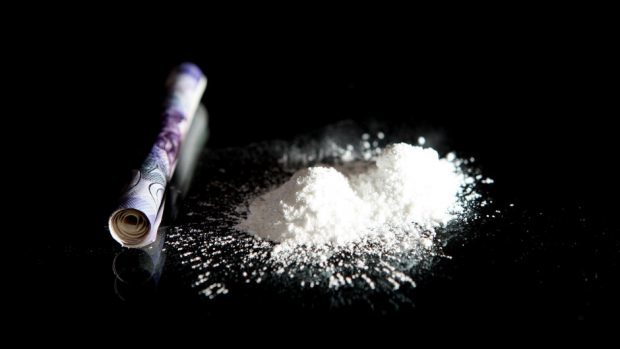The use of online deliveries to supply cocaine, amphetamines and ecstasy has accelerated during the coronavirus crisis, Scotland’s drugs tsar has said.
Professor Catriona Matheson said accessing illegal substances through social media was becoming increasingly common as dealers delivered and posted drugs during the lockdown.
She also warned the measures taken to suppress the Covid-19 pandemic could result in rising drugs death rates because of a fall in new referrals for treatment.
Research conducted by the Scottish Government’s drugs task force, headed by Professor Matheson, suggested there was a dip in the supply of drugs at the outset of the outbreak.
But the supply chain quickly got back to normal as dealers exploited online technology to push illegal substances.
Professor Matheson also revealed the coronavirus crisis had led to major concerns that people using drugs were failing to use clean injecting equipment, increasing the risk of HIV and Hepatitis C transmission.
There are also fears low-quality heroin in Scotland appears to have resulted in increased use of crack cocaine and street valium
And she expressed frustration that the coronavirus had struck at a time when Dundee was beginning to make progress in its long-running battle against the drugs culture that has plagued the city.
Professor Matheson was appointed chairwoman of the Scottish Drugs Death Task Force just before it was revealed that the annual drugs death toll in Scotland had breached the 1,000 barrier.
In July last year it emerged there had been a record 1,187 drug-related deaths in 2018, giving Scotland a higher death rate than the US and other European countries.
The coronavirus crisis has contributed to a delay in the publication of 2019 figures, which are not expected until the autumn.
But Professor Matheson said numbers of deaths “were not going down” and estimated the figures for 2019 would be “in the same order” when they are finally published.
Warning of impact of coronavirus on drugs deaths
Looking further ahead, Professor Matheson warned that the coronavirus would have an impact on future death rates as treatment centres and drugs services struggled to operate at capacity during the crisis.
Professor Matheson, who is Professor of Substance Use at Stirling University, said it was “worrying” that people had found it more difficult to get treatment during the crisis despite efforts to make services accessible. Although a spike in drugs deaths had yet to be observed during the pandemic, she had fears for the future.
There is definitely a worry in terms of death rates because having people on good-quality treatment is crucial to reducing harm and drug deaths. In terms of the work of the task force looking forward that is going to be one of the more challenging areas.”
Professor Catriona Matheson
“There have been less new referrals for treatment over the last few months and that is a concern, because treatment is protective against harm and against drugs deaths,” Professor Matheson said.
“The evidence for that is very strong, so we need to try to get that back up and try to access treatment if they need it.”
She said treatment centres and services all over the country had been forced to operate at reduced capacity because of staff shielding or being off sick.
“If you lose a proportion of your workforce because they are ill or symptomatic it will have an impact. And it is not as if you can get agency staff as you might have been able to.
“There is definitely a worry in terms of death rates because having people on good-quality treatment is crucial to reducing harm and drug deaths. In terms of the work of the task force looking forward that is going to be one of the more challenging areas.”
Exploiting technology to supply drugs
When Scotland went into lockdown, the taskforce observed an initial reduction in the supply of drugs but by May activity in the illicit trade had got back “to normal”.
We know more people get drugs through the post now. Through various deliveries. You can access illegal drugs very quickly and very easily and get them delivered to your door through online access.”
Professor Matheson
Professor Matheson said there had been a “short-term impact” on supply but dealers had found “other ways” to distribute drugs.
“We know more people get drugs through the post now. Through various deliveries. You can access illegal drugs very quickly and very easily and get them delivered to your door through online access. Sites get taken down quickly once they are identified but they just keep moving around and change their name.”
When asked if the coronavirus pandemic had accelerated drugs supply through online deliveries, Professor Matheson replied: “I would say it was there before and certainly in terms of some of the stimulant drugs I think it probably has.
“I wouldn’t necessarily say that around heroin, because I have got no evidence. But I know some of these stimulants – cocaine, amphetamine, MDMA (ecstasy) – and street Valium as well which are being increasingly accessed through social media.”
Fears of HIV and Hepatitis C transmission
Across the country there had been initiatives to provide people who use drugs with clean injecting equipment, but there were still fears dirty needles were being reused and shared.
“There is a little bit of a concern around the impact of us having less injecting equipment going out to people,” she said.
“People aren’t themselves wanting to get clean injecting equipment and that is so important for reducing spread of blood-borne viruses. I am worried that there might be an increase in Hepatitis C.
“HIV is a concern everywhere,” she added. “There is known increase in prevalence among injecting drug users in Glasgow. But it is not confined to Glasgow, so it would be a risk across the country. That comes from sharing equipment.”
Professor Matheson’s hope was that people would not necessarily have been sharing needles given the reduced interaction during lockdown. But she warned that even if needles weren’t being shared, reusing them would cause infections, vein problems and conditions like thrombosis.
A surge in crack cocaine and street Valium use
Another big concern was the increased use of crack cocaine and so-called street benzodiazepines (also known as street Valium), which is very cheap and used in large quantities. Professor Matheson said it was thought that the poor quality of heroin in Scotland had contributed to the increased use of those drugs.
Her task force believed people were turning to cocaine and benzodiazepines to compensate for the lack of drug-induced “buzz” from inferior heroin.
“The quality of drugs in Scotland seems to be pretty poor, particularly heroin,” she said. “That’s one of the reasons we suspect – but we are still gathering data on it – that people use a range of drugs. So, there is a lot more crack cocaine use. And a lot more use of these street benzodiazepines, which is a big, big concern.”
Frustration over the effect of Covid on Dundee’s drugs war
The Commission was launched to tackle the city’s drugs death rate after figures suggesting it was 0.23 per 1,000 people – almost double the national average.
Professor Matheson expressed exasperation that the Covid-19 outbreak had occurred just as efforts were being made to implement the commission’s recommendations.
“I feel frustration that Covid has hit and set things back just as progress was beginning to be made in Dundee and elsewhere in country,” she said.

